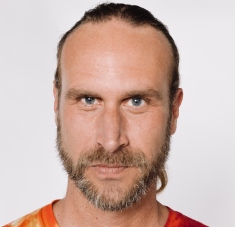
By Bart Schaneman
Dr. Bronner’s has become a leading natural products company in the United States over the past three decades and a pioneering force in the hemp consumer goods space.
In 2000, Dr. Bronner’s started using hempseed oil in its body care products, ranking as one of the first companies to do so.
Several years later, the company certified its soaps, lotions, balms and other personal care products under the USDA National Organic Program.
The moves landed the Vista, California-based company in legal fights with the U.S. Drug Enforcement Administration and the USDA – battles Dr. Bronner’s ultimately won.
“There is huge opportunity in the CBD market, but also with food, biocomposites, construction and clothing,” said Bronner, who’s also a big marijuana advocate.
The company sees opportunities to make waves in the cannabis industry as well.
In June, Dr. Bronner’s announced it would contribute $125,000 in seed-round funding for a newly formed marijuana industry standards group, the Cannabis Certification Council.
The council is comprised of an organic cannabis association and an ethical labor practices organization, with Dr. Bronner’s providing continued financial and logistical backing.
In an email interview with Marijuana Business Daily, Bronner discussed the decision behind the funding, what the marijuana industry can learn from the natural products industry and the future of cannabis and hemp.
Why did you decide to support the Cannabis Certification Council?
We are committed to making socially and environmentally responsible products, and a major part of our success is organic and fair trade integrity. We are excited for the Cannabis Certification Council to begin driving that ethos in the cannabis industry.
The council’s standards certify that cannabis products are organically grown and fairly produced.
The organic integrity of cannabis is important for health and environmental reasons, and whether cannabis is grown under just and fair working conditions is important for all workers involved.
You’ve been in the natural products industry for many years. What can you tell the marijuana industry about what you’ve learned?
The market and consumer interest in ethically produced, organic and natural products only continues to grow.
Food, supplement and body care products laced with chemicals and synthetic ingredients are increasingly on their way out. People want to buy products they know are good for their bodies, their families and the earth. Cannabis is no different.
Any key pieces of advice the marijuana industry should keep in mind as it evolves?
I want to see entities who stay true to the deeper light and love that cannabis can connect us to get big and succeed, and not succumb to the temptation to chase profits at the cost of compromising deeper values.
Can you talk about your drive to support the recreational cannabis industry? Where did that originate from?
Cannabis is my daily meditation and ally, keeping me tuned to my higher, deeper self and connected with loved ones and the world around me.
Will you be focusing on key states as you continue to support the recreational cannabis industry?
I see the battle as pretty much at the federal level now.
Where do you see the business opportunities for organic or socially responsible marijuana?
Everywhere.
Consumers who have legal access want to be assured the products they are buying and putting into their bodies align with their personal and moral values.
It’s also a question of safety – the current lack of standards in the industry allows for sale and distribution of cannabis products that are highly contaminated with all sorts of toxic pesticides. And exploitative labor practices are unfortunately not uncommon in the industry.
Any key business opportunities come to mind in the hemp industry?
There is huge opportunity in the CBD market, but also with food, biocomposites, construction and clothing.
There’s the question of how a natural products company can make claims about the health benefits of its products, particularly when it comes to labeling and packaging. What advice do you have for companies in this regard?
It’s a dance we all have to navigate. Getting good legal review of product label claims is always a good idea.
This interview has been edited for length and clarity.
Bart Schaneman can be reached at barts@mjbizdaily.com

